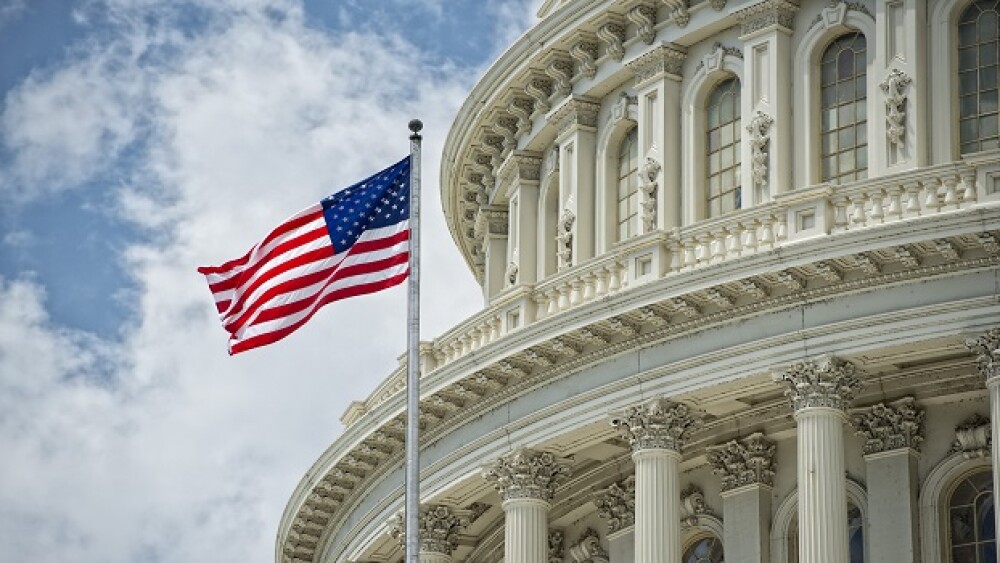Lawmakers on Thursday voted 18–3 to increase oversight of pharmacy benefit managers and limit their practice of spread pricing, when PBMs charge payers for drugs more than they pay pharmacies.
Pictured: U.S. Capitol/Courtesy Andrea Izzotti/Adobe Stock
Thursday, the Senate Health, Education, Labor and Pensions (HELP) committee passed four new bills and eight bipartisan amendments seeking to control drug prices by boosting generic competition and curtailing pharmacy benefit managers.
Voting 18–3, the HELP committee passed the Pharmacy Benefit Manager Reform Act (S. 1339), placing strict limits on “spread pricing,” the pharmacy benefit manager (PBM) industry practice of charging insurance companies more than what they pay pharmacies in return.
PBMs are third-party service providers that act as intermediaries between drug makers, pharmacies and insurance sponsors. They negotiate with manufacturers, help generate formularies and process claims.
According to the bill, starting January 2025, providers of group health plans or health insurance packages are not allowed to charge beneficiaries—or any entity providing PBM services—a price for a prescription drug “that exceeds the price paid to the pharmacy.”
S. 1339 also increases the oversight of PBMs by requiring them to submit different reports, at varying frequencies, containing the list of drugs covered, the total amount spent on drugs and received in rebates and discounts, and an explanation of their benefit design as well as other similar information.
“Just one day after examining the pricing power drug companies use to block competition, the HELP committee took drug companies’ bait and wrongly blamed the one actor in the supply working to reduce drug costs,” the Pharmaceutical Care Management Association (PCMA), the national representative body for PBMs, said in a statement following the hearing.
“The committee advanced legislation, without allowing common sense amendments, that would increase prescription drug costs,” the PCMA said.
Beyond PBM oversight, the HELP committee also advanced three other bills—the Ensuring Timeline Access to Generics Act (S. 1067), Expanding Access to Low-Cost Generics Act (S. 1114) and the RARE Act (S. 1214)—which together limit the protection that branded drug manufacturers enjoy and empower generic drug developers.
HELP is chaired by Sen. Bernie Sanders (I-VT) and Bill Cassidy (R-LA) is its ranking member.
Thursday’s mark-up comes a day after the HELP committee grilled executives of Eli Lilly, Novo Nordisk and Sanofi, the three biggest insulin makers—along with the three top PBMs—over high insulin prices.
“Let’s not be naive. The drug companies last year made $100 billion in profit. PBMs made $27 billion in profit,” Sanders said. “Drug companies tell us that that money goes to research and development. More money went into stock buybacks, significantly more than research and development.”
Together, Lilly, Novo and Sanofi control some 90% of the global insulin market, according to the Department of Health and Human Services. The Inflation Reduction Act, which the Biden administration passed in 2022, forced all three insulin makers to cap copays at $35 per month.
In response to Sanders’ criticism, the pharma executives insisted that while the list prices of insulin have increased, the net spend of patients has dropped thanks to their assistance programs. PBMs, on the other hand, pushed to keep the blame on the pharma companies, which they allege could do much more to lower prices.
Tristan Manalac is an independent science writer based in metro Manila, Philippines. He can be reached at tristan@tristanmanalac.com or tristan.manalac@biospace.com.






